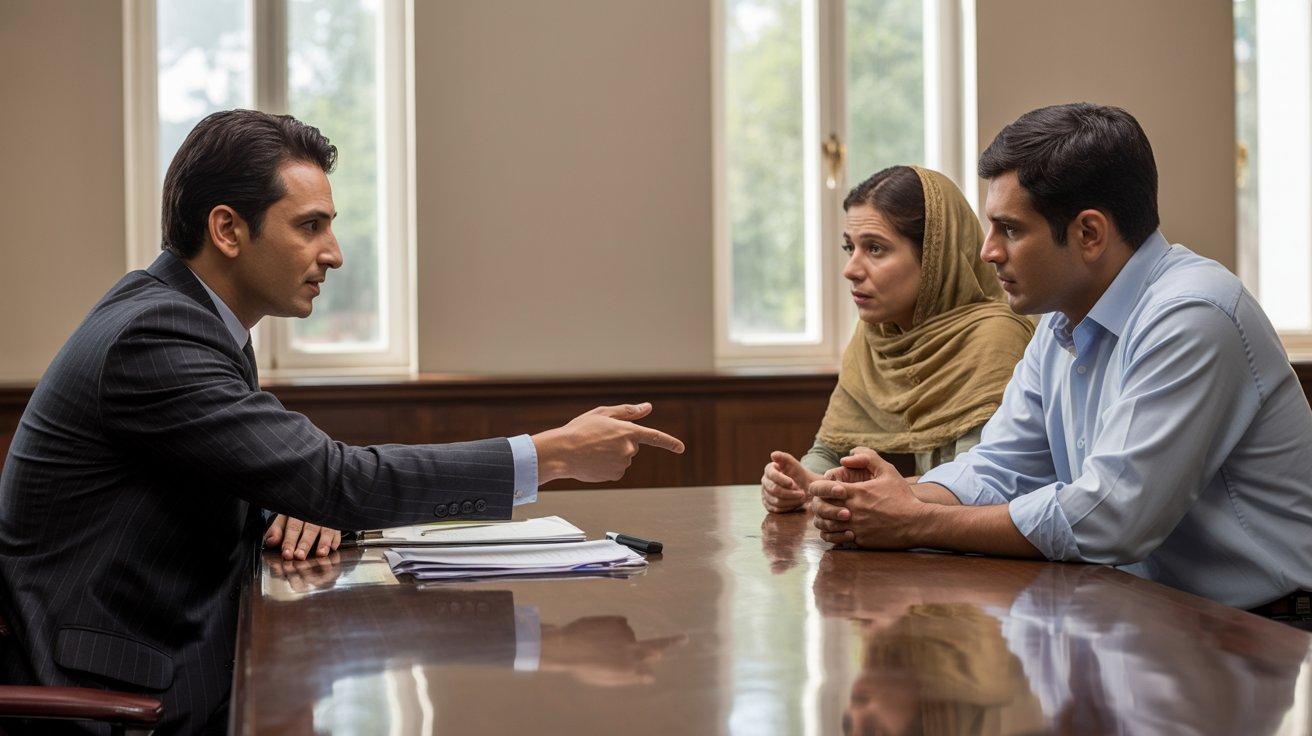When a matrimony ends, it's not just the couple who are impacted but kids constantly feel the powerful emotional effects. One of the main worries for parents after a breakup is number out who will take care of their children. If you're going through a divorce or separation, knowing the child custody laws for dispute resolution in Pakistan can assist you in deal with this tough situation more clearly and confidently.
In this guide, we'll explain how guardianship is decided, the rights both parents have, and what courts look at when creating opinions about a child's future.
Child Custody
Child custody is about the legitimate responsibility of taking care of a child when the parents are no longer together. It covers where the kid will remain and who gets to make major choices for the child's future. In Pakistan, these rules are based on Islamic teachings and also involve official laws such as the Guardians and Wards Act of 1890 and the Family Courts Act of 1964.
Categories of Custody Under Pakistani Law
Two major categories of custody under child custody acts in Pakistan
Physical Custody
This means the right to take care of the child in your physical presence, usually given to the mother when the child is young.
Legal Custody
The right to make decisions about the child's education, health, religion, and overall upbringing typically remains with the father, unless the court determines otherwise. This refers to legal custody, which often stays with the father, unless there are specific reasons for it to be transferred.
Who Gets Custody After Divorce
The family court and child custody lawyer handles all child custody disputes. after a divorce. Typically, mothers are granted physical guardianship of younger children, particularly during their early years. However, the father remains the legal guardian and remain to have responsibilities, such as providing financial support and making significant decisions.
Age Guidelines For Custody
In general, the child custody lawyer use the following age regulations when deciding guardianship matters:
- Boys: until the age of 7, the child remain with mother
- Girls: until puberty (around 9–13 years old), they remain with mother
These are generic guidelines.
The court can select to turn from these if they believe the child’s well-being is at risk.
Father’s Rights in Child Custody
Even if the father does not have physiological custody, he is still considered the realistic and legitimate guardian according to Pakistani law. He is responsible for:
- Providing fiscal support
- Creating major life decisions
- Providing a stable home if he is given custody
Pakistan’s child and custody law also ensure that the dad has the right to see his child regularly.
If these visitation rights are not admired, the father can take the matter to court to make sure they are followed.
Mother’s Rights in Child Custody
Mothers are often selected in guardianship cases for young children due to the powerful emotional bond they share and the Islamic idea of "Hizanat." However, child custody laws in Pakistan say that a mother's right to custody is not absolute. A mother's custody can be questioned if:
She marries someone who is not related to the child
She is found to have bad behavior or questionable character
She does not take proper care of the child's needs or education
Despite these possibilities, courts usually try to keep the child with the mother unless there are major problems.
This is about the rights of mothers in child custody matters under Pakistani law.
What Happens If Both Parents Want Custody
In multiple cases, both parents say they are better qualified to take custody of the kid. When this occur, the courts in Pakistan look further closely at the status. Judges and child custody law services in Pakistan take into account
how close the child is passionate to each parent
how well each parent can provide for the child financially
the quality of education and living conditions
the health and safety of the child
and the child’s own wishes, if they are old enough to share them
The court always makes a decision that is best for the child, not just based on gender or money.
Relatives or Grandparents Custody
If both parents are considered incompetent or incapable to care for the child, a close relative like a grandparent, aunt, or uncle can request for guardianship. In Pakistan, the child custody lawyer allows this through the Guardians and Wards Act, as long as the person applying can show that it's best for the child to live with them.
Affects of Remarriage in Child Custody
It can impact the custody status, when a mom gets married again, particularly to someone who isn't associated to her child. This is due to the fact that the new spouse might be seen as a potential danger to the child's well-being. Nevertheless, if a father remarries, it normally doesn't change his custody rights unless there's testimony that the new family atmosphere is risky or unacceptable for the kid.
Final Thoughts
Child custody is one of the most sensitive legal issues a parent can confront. Understanding ordinance and knowing child custody lawyer will help to in dispute resolution in Pakistan can assist you in preparing for what's to come, if you're going through a divorce or separation. Whether you're a mother trying to maintain custody of your child or a father seeking fair visitation rights, the law is generated to ensure that the child's future is safeguarded.



